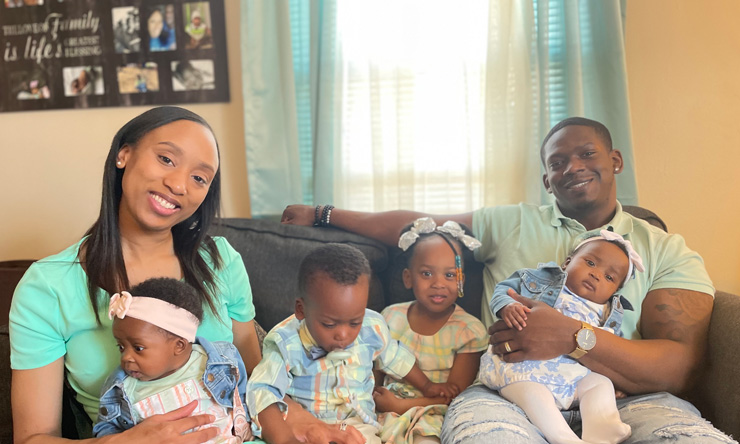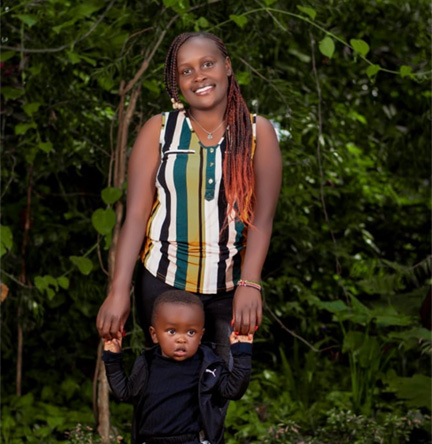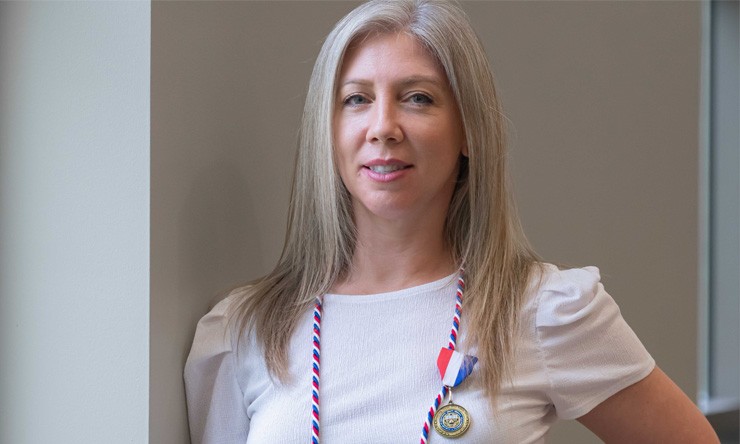More than a century after "The Melting Pot" became a popular description of a United States that welcomed immigrants from across the globe, Arturo Meijide-Lapido, PhD, believes a different cooking metaphor might be more appropriate.
"'The Melting Pot' is a bit of a myth," said Meijide, a native Spaniard in his 10th year as a full-time US resident and his fourth as an assistant professor in the St. Ambrose Modern Languages and Cultures Department. "The US is more of a Caesar salad. You can leave out what you don't want. There is diversity, but it is a little bit compartmentalized."
Europe isn't necessarily different in that regard, Meijide said, but it is more aware of its compartments. "That narrative of integration doesn't exist in Europe," he said.
Meijide said a culture centered on enriching lives and developing students makes the St. Ambrose community ready-made to embrace difference. "I think it is a pretty diverse campus," he said. "And I think St. Ambrose is very inclusive."
The department Meijide chairs provides a window to the greater world. Studying abroad is a requirement for all SAU students who major in languages, and Meijide said students who view another part of the world through an academic lens invariably return with a broader understanding of what diversity truly means. "Definitely, the study abroad experience is a turning point in their careers," he said.
Meijide serves SAU's largest minority student group as adviser to both the Spanish Club and an SAU chapter of the National Collegiate Hispanic Honor Society. He also is working with students to establish a League of Latin American Citizens (LULAC) chapter on campus.
The Spanish Club is attempting to reach out to a rapidly growing segment of non-English-speaking Hispanic immigrants in the Quad Cities, ideally by providing essential translation for legal issues as well as support to ease the transition to a new country.
Meijide himself got a cold, hard lesson in one stark difference between the Spanish culture he'd known for 28 years and that of the US when he came to the University of Kansas in 2004 to pursue a master's and then a doctorate in Spanish.
"I needed to buy stuff for my apartment and was told a Wal-Mart was five minutes away," he said. Through a 45-minute walk in the cold and snow, the newcomer gained a keen understanding that Americans typically measure time and distance from behind the wheel of an automobile.
What's more, he said, people always seem to be on the go in the US. That's not to say European cultures de-value work, he stressed: "But I think the whole society is more relaxed. They think, 'OK, you're busy but now you're going to disconnect for a couple of hours.' Here, I just think that disconnect is not there."
Meijide mostly speaks Spanish in his classroom, where he teaches courses in Hispanic literature, culture and film in addition to language. The Modern Languages and Cultures Department offers similar curricula in French and German.
Meijide would like to see the department become a more integral piece of every student's education. "Sometimes we don't realize how easily simple barriers can be scaled," he said. "I would like to see our department become a bridge to other cultures in the world and to other cultures in our community, too. Language can totally change your life."
Share This Story



